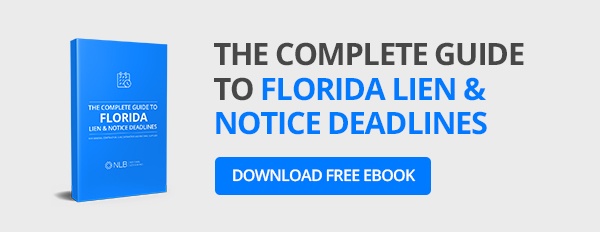With over 550 thousand active workers, almost 7% average annual increase in jobs, and years of consecutive overall growth, the construction industry remains a vital and vibrant area of Florida’s economy. One of the important factors contributing to economic viability and its growth is the issue of prompt payments. Individual players in the construction services business – contractors, subcontractors, and material suppliers – must be able to operate with an assumption that they will be paid in a timely and consistent manner for the services they provide time. To ensure legal protection for construction companies, and to provide a framework to resolve disputes related to non-payments or late payments, Florida legislators adopted a set of statutes known collectively as the Florida Prompt Payment Law.
If you are a contractor in the construction industry in Florida, having a solid understanding of the prompt payment statutes is key. Knowing the basic tenets will help you apply them in real-life situations, can protect your cash flow, and your business if you’re struggling to collect payment from one or more of your clients.
In this article, you’ll find a practical summary of the Florida Prompt Payment Law that will help you to exercise your right and ensure timely payment.
Florida Prompt Payment on Private Construction Contracts
Florida’s statutes state that payment for construction services must be made “at the time and under the terms specified in the contract”. Importantly, in contrast to similar laws adopted by other states, Florida prompt payment statutes do not specify arbitrary deadlines for progress payments, in case these are not specifically mentioned in the contract. Contractors, then, should make sure that such deadlines and payment dates are stated explicitly in the agreement they make with the property owner before they start to provide their services. By doing so, they will secure regular progress payments and cash flow that will help them maintain the continuity of the construction project.
The Prompt Payment Law does, however, specify the circumstances under which the owner is obliged to promptly provide payment to the contractor. The following three basic conditions must be met:
- the contractor has provided the owner with the service in accordance with the terms of the construction contract
- the contractor has provided the owner with a notice, or written request for payment
- the contractor has served the owner with an affidavit, that is, a written form, signed in front of a notary, stating that the contractor has finished all the contractual work on the project
Upon receiving the notice for payment and the affidavit, the owner has 14 days to return the notice if they deem the work done to be incomplete or deficient, and request corrections. However, if the owner doesn’t return the notice, nor make proper and prompt payment within 14 days, they will be required to pay interest on the amount due. The interest rate is set quarterly by the Chief Financial Officer and as of January 2019, it amounts to 6.33% annually.
Bonafide Disputes & Retainage
The Prompt Payment Law also refers to Bonafide disputes and Retainage they may affect your rights to receive prompt payment. Bonafide disputes refer to the owner’s right to withhold, in good faith, a part of the payment due if a contractor hasn’t fulfilled a certain contractual obligation or has provided deficient work. Retainage is a portion of each progress payment that the owner can rightfully withhold – or retain – until the project is substantially completed. The retained amount must, however, be paid if one of the following events takes place:
- An architect or engineer issues a certificate that the project is substantially completed
- A certificate of occupancy is issued
- The owner or a tenant of the owner takes possession
If the above occur, the owner must provide the contractor with a punch list, or a list of items that are yet to be completed, within the time period specified in the contract. If the contract doesn’t contain a clause that stipulates such period, the Prompt Payment Law provides for the period of 15 days starting from the date any of the three events listed above occurs. In case the time to produce the punch list ends and the owner fails to do so, the contractor will be entitled to receive any retained payments as well as to interest on the amount due. The interest will start to accumulate after 14 days.
If You Have a Valid Complaint
A violation of any of the provisions of the Prompt Payment Law discussed may force a contractor to file a complaint with the court against the owner. If you are a contractor in Florida and are facing such a situation or a similar one, you may still be unsure what action you should take. In such a case, it is best to consult an attorney experienced in handling issues related to payment obligations and liens.
The attorneys at National Lien & Bond have an extensive understanding of mechanics lien laws across the U.S. as well as ample experience and a proven record of successfully resolved cases. We work closely with our clients, focusing on their needs, and providing guidance tailored to their situation and personal goals.
Contact us today and let’s work out a solution to your legal issue related to prompt payment or any other mechanics lien issue.
Need to learn how prompt payment acts work in other states? Check out our Lien and Notice Deadline Guide
This blog is for educational purposes only and not intended for legal advice.

